Nature Knows and Psionic Success
God provides
These 3 Ayurvedic Herbs May Help Slow Down Ageing
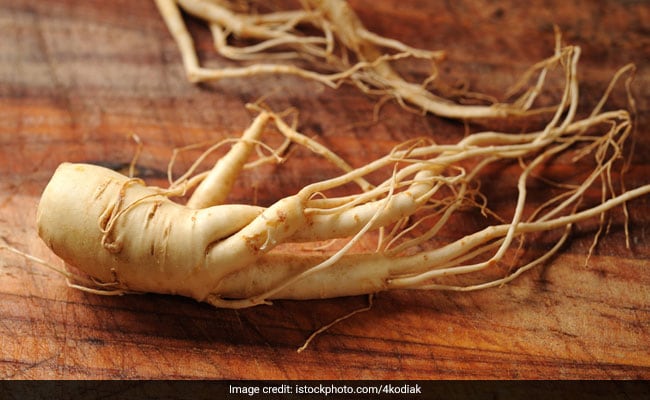
Grey hair and wrinkled skin are two of the most common signs of ageing. As you grow old, the process of degenerating cells is known as ageing. Although ageing is inevitable and one cannot avoid these changes, these mental, social, psychological and physical change can be delayed with the help of medication, Ayurvedic herbs and even with some natural kitchen ingredients. If you wish to slow down ageing without any side-effects, then you can go the Ayurveda way! As per Ayurveda, a few herbs can reduce the symptoms of ageing by regenerating body cells. Our diet plays a major role in determining the pace of ageing. A lifeless-looking and dull skin can be rejuvenated by feeding the body with a nutrient-dense diet that is loaded with foods that can boost cell growth. So, healthy eating choices hold a lot of importance here. Here are 3 Ayurvedic herbs that may help down the pace of ageing: Brahmi This Ayurvedic wonder is replete with health-benefiting properties. It is not only believed to have refreshing effects on the brain, but also acts as a memory enhancer. If you’re someone who happens to suffer from age-related memory loss, then you may consider this Ayurvedic remedy. According to Ayurvedic expert, Dr. Akhilesh Sharma, "This therapeutic herb is quite beneficial for improving brain functions and strengthens the memory. It is known to enhance the retaining capacity, long-term memory and short-term memory, all of which are crucial aspects of memory." Turmeric Turmeric, or haldi, is one kitchen ingredient that is widely used in a number of dishes across the world. Curcumin, an essential compound found in turmeric, is shown to possess powerful anti-ageing effect. According to the book, ‘Healing Foods’ by DK Publishing House, "Curcumin reduces the build-up of the protein amyloid-b in the brain. Amyloid-b […]
Why traveling is good for your mental health

( Natural News ) No matter how happy you are with your life, spending too much time doing the same things can still get a bit tiring. Oftentimes, this can make you feel like you’re stuck in a rut or it can even make you anxious or depressed. One thing that you can do to get out of this funk is to travel. Studies have shown that traveling can do wonders for a person’s mental health , regardless of whether it’s taking a road trip or boarding a long flight to a foreign country. Some mental health benefits that you can enjoy from traveling include the following: It broadens your perspective — New experiences while traveling can push you out of your comfort zone in ways that you will most likely enjoy. You’ll get to try out new dishes that you’ve only heard of and see things that you’ve only seen online or read in books. This will broaden your view of the world and its people, cultures, and customs. It helps you learn more about the world — Traveling can teach you things that you wouldn’t have learned even from years of formal education. You’ll gain new knowledge about the world through conversations with the people you’ll come across with. It strengthens your relationships — It’s always nice to travel with someone, whether it’s a family member, friend, or your significant other. You’ll get to share new experiences with them that can strengthen your bond. Travelling also teaches you a lot not just about yourself but also about your travel companion that can help deepen your understanding of each other. It makes you happier — The anticipation of an upcoming trip can significantly boost a person’s mood. In fact, a study from the University of Surrey found that […]
GREAT news: Cannabis found to reduce diabetic neuropathy pain

( Natural News ) Even as diehard prohibitionists continue to spew utter nonsense about the “dangers” of cannabis sativa (marijuana), open-minded researchers are keeping busy uncovering the plant’s many safe and effective health benefits, including its ability to naturally quell the often extreme pain associated with diabetic neuropathy . A team of researchers from the University of California, San Diego deserves the credit for finding that cannabis has an amazing ability to greatly reduce, and in some cases completely eliminate , diabetic neuropathy pain – and all without the need for dangerous and typically ineffective pharmaceutical drugs. Publishing their findings in the peer-reviewed Journal of Pain , the team, led by Dr. Mark Steven Wallace, M.D., who chairs of the Division of Pain Management at UCSD, says that the healing constituents found naturally in cannabis are a perfect match for the cannabinoid receptors that exist on human inflammatory cells, as well as all throughout the human nervous system – including in the nerves, spinal cord, and brain. Compared to those in the control group, study participants who were given cannabis either in vapor or smoke form experienced dramatic reductions in diabetic neuropathy pain. These same participants experienced gentle euphoria and sedation as an added bonus – the beneficial effects of cannabis further minimizing their sensitivity to being stroked with a foam brush, or pricked with a pin. “We found that the more concentrated the dose, the more relief people got,” Dr. Wallace is quoted as saying, adding that his cannabis participants experienced pain relief that lasted for four hours. 100% organic essential oil sets now available for your home and personal care, including Rosemary, Oregano, Eucalyptus, Tea Tree, Clary Sage and more, all 100% organic and laboratory tested for safety. A multitude of uses, from stress reduction to topical […]
Blueberries are bursting with various antioxidants that reduce the risk of dementia
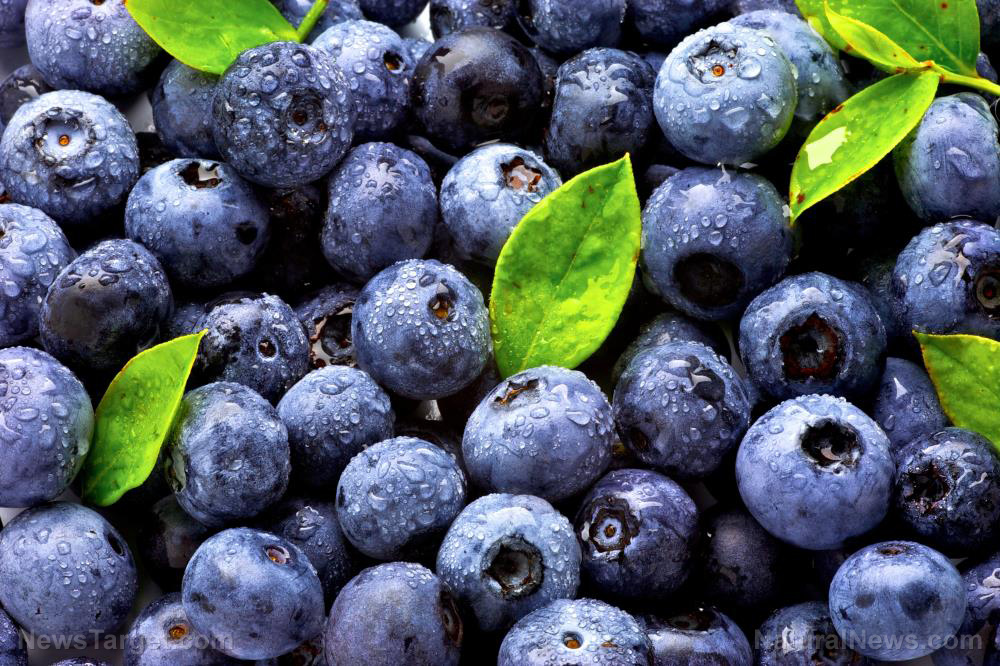
( Natural News ) In the U.S., more than five million people suffer from Alzheimer’s, a progressive form of dementia. And as the population ages, this number is expected to rise even more. According to the Alzheimer’s Association , this number could reach up to 15 million by 2050. This disease commonly affects people over the age of 65, causing them to have impaired memory and cognitive function. It usually starts with the patient being forgetful and confused but over time, this continues to progress as brain damage also becomes more severe. Alzheimer’s is the sixth leading cause of death in the U.S., with one out of three elderly persons dying due to its complications. Some examples of these complications include the following: Agitation and anxiousness Bladder and bowel problems Dehydration Depression Infections Malnutrition Poor balance and coordination Sleeping problems Many people are scared of developing Alzheimer’s not just because of its possible complications, but also because of the high cost associated with this disease. Each year, Alzheimer’s costs the nation approximately $326 million while caregivers spend more than $5,000 in caring for loved ones with this disease. Fortunately, scientists have found a way to prevent Alzheimer’s naturally through food, such as blueberries . How do blueberries help with dementia? Blueberries are proof that good things do come in small packages. Not only are they delicious, they are also packed with nutrients that are great for your health. This superfood is famous for its ability to reduce the risk of heart disease and cancer. But aside from these, blueberries have also been shown to be beneficial against Alzheimer’s . Mother Nature’s micronutrient secret : Organic Broccoli Sprout Capsules now available, delivering 280mg of high-density nutrition, including the extraordinary "sulforaphane" and "glucosinolate" nutrients found only in cruciferous healing foods. Every […]
Cholesterol Medications Cause Heart Attack, Rapid Aging, and Brain Damage. Use These 2 Foods Instead

Statins are the main cholesterol medications, and one in every 4 Americans over 45 is taking it. Therefore, it is a 30-billion dollars worth industry, but unfortunately, these drugs cause numerous side-effects, such as anemia, acidosis, chronic fatigue, liver dysfunction, Parkinson’s, diabetes, Alzheimer’s, thyroid disruption, and cancer. Justin Smith made a movie “$29 Billion Reasons to Lie About Cholesterol”, in which he reported: “Between 1994 and 2006 men who were between the ages of 65 and 74 and were dealing with increased levels of cholesterol, have decreased it from 87% to 54%, but also that very same group started to experience heart diseases, and the rate of the coronary heart disease was still the same. There were other groups also where people with high cholesterol decreased and the rate of heart disease was increased.” Researchers have found that cholesterol medications raise the cancer risk, and according to a 1996 report in the Journal of the American Medical Association: “The use of the lipid-lowering drugs (statins and fibrates) was only increasing the risk of cancer in rodents, there were a few cases where at a certain level of animal exposure to those that were prescribed to people. There were some careful postmarketing surveillance and long-term clinical trials that were needed in the next few decades to see if the drugs that are prescribed to lower the cholesterol levels are actually the ones that trigger cancer in people. During the researches, it was quickly found that both in humans and animals, these lipid-lowering drugs should not be used, especially the statins and fibrates, in patients that were at high risk of coronary heart disease.” The use of these drugs can seriously harm health since they: Raise the risk of chronic inflammation, weaken the immune system, and elevate blood sugar Statins lower […]
How to improve sleep quality naturally
What is sleep? The dictionary definition is “a condition of body and mind such as that which typically recurs for several hours every night, in which the nervous system is relatively inactive, the eyes closed, the postural muscles relaxed, and consciousness practically suspended.” But actually, sleep equals rest. And it’s an important part of your daily life — most of us spend approximately one third of our lifetime sleeping. Without sleep you can not survive, and it’s important for a number of brain functions, including how nerve cells (neurons) communicate with each other. In fact, your brain and body stay remarkably active while you sleep. And it also plays a housekeeping role that removes toxins in your brain that build up while you are awake. Sleep affects almost every type of tissue and system in the body — from the brain, heart, and lungs to our metabolism, immune function, mood, and disease resistance. Many studies have shown that a chronic lack of sleep, or simply poor sleep quality, can increase the risk of disorders including high blood pressure, cardiovascular disease, diabetes, depression, and obesity. There are four stages when we sleep. Stage 1 is the transition between being asleep and awake. Stage 2 is light sleep. Stage 3 is deep sleep, which is the most refreshing and the time for the body to repair its tissues. And stage 4 is REM sleep. This 4th phase is also known as paradoxical sleep, and it is the sleep state during which we have most of our dreams, and is also involved in the regulation of emotions and memory consolidation. REM sleep disturbances are common in mood disorders, such as depression. Did you know, however, that our body actually does not really require sleep? It really only requires rest. That’s why the […]
Natural selection and spatial memory link shown in mountain chickadee research

University of Nevada, Reno research results provide the first direct evidence for natural selection on spatial cognition in wild food-caching mountain chickadees in one-of-a-kind in the world high-altitude field lab. Credit: Vladimir Pravosudov, University of Nevada, Reno Chickadees with better learning and memory skills, needed to find numerous food caches, are more likely to survive their first winter, a long-term study of mountain chickadees has found. Enhanced spatial cognition and brain power evolves via natural selection , an elaborate study of hundreds of mountain chickadees in the Sierra Nevada has found. Using passive integrative transponder (PIT) tags in combination with radio frequency identification-equipped feeders, scientists at the University of Nevada, Reno have tracked feeding behaviors and measured learning and memory of these non-migratory birds that live year-round in the high-elevation forest northwest of Truckee, California. "This is a unique program, set in the wilderness, so we get unique results," Vladimir Pravosudov, lead researcher and biology professor at the University’s College of Science, said. "Over the years, we’ve banded and tagged thousands of chickadees and observed their spatial cognition using custom-designed and built feeders that allow us to track how individuals learn and remember. And now we have tested whether individuals with better learning and memory performance are more likely to survive the winter." Ben Sonnenberg, a doctoral student in the laboratory of Pravosudov (as a part of the Ecology, Evolution and Conservation Biology Graduate program) is the lead author, and Pravosudov is a corresponding author, on a scientific paper, based on the research, published Feb. 7 in the journal Current Biology . ‘We’re looking at how natural selection can generate differences in the birds living in different environments, and we now have direct evidence that selection is acting on chickadees’ spatial cognition, which is needed to find tens of […]
Research reveals the connection between high blood sugar and brain shrinkage

( Natural News ) We’ve all heard about the myriad of health concerns surrounding sugar and high blood sugar levels. Maybe you’ve even heard that blood sugar can affect your brain. And it seems that the perils of high blood glucose truly do have a negative effect on the brain. New research has found that there is a connection between blood sugar levels and the size of the hippocampus — which is the region of the brain responsible for memory. In fact, a direct correlation between high blood sugar levels and shrinkage of the brain has been observed — as well as the memory, learning and cognitive difficulties to match. New findings on the blood sugar-brain connection A report from German researchers was recently published in the journal Neurology sought to further examine this phenomenon. To conduct their research, 141 human subjects with an average age of 63 were recruited to participate in their analysis. Their memory and learning capabilities were assessed, and the size of each individual’s hippocampus was measured using MRI brain scans. The participants’ blood sugar levels were also recorded. The research team discovered that there was a direct correlation between lower blood glucose levels and positive results in several key areas of brain function. Better memory ability and a higher capacity to learn new things were both observed in those with lower blood sugar levels. There was also a significant relationship between blood sugar levels and hippocampus size: high blood sugar levels correlated with much more pronounced shrinkage of this valuable region of the brain. 100% organic essential oil sets now available for your home and personal care, including Rosemary, Oregano, Eucalyptus, Tea Tree, Clary Sage and more, all 100% organic and laboratory tested for safety. A multitude of uses, from stress reduction to topical […]
Lychee fruit found to be a potent source of anti-tumor compounds

( Natural News ) Lychee is a fruit that has a hard, bumpy, red skin that can be easily peeled away. Inside it is a soft, white jelly-like juicy pulp and a large brown inedible seed. Aside from its sweet and juicy taste, there are more reasons to eat this red, round fruit. A recent study review finds that different parts of lychee fruit contain anti-tumor compounds and can potentially prevent different types of cancers. Researchers from the University of Palerno in Italy conducted a comprehensive analysis on the anti-tumor properties of the various parts of lychee . In the study, they reviewed previous research on the anti-tumor compounds that lychee and its different parts contain. Lychee ( Litchi chinensis ), also known as Chinese cherry, is a fruit tree that was originally cultivated in China for over 2,300 years and in northern Vietnam, and is now grown in tropical areas globally, including Southeast Asian countries, the Indian subcontinent, and South Africa. Mainly grown in China, India, Thailand, and Vietnam, lychee fruit is not only packed with vitamins, minerals, and others, but can also boost your endurance and workouts . The researchers found that apart from its pulp, its inedible parts including its skin and seed can inhibit tumor growth. They found that the lychee pulp contains polysaccharides, which have strong antioxidant activity, anti-tumor, and immunomodulatory effects. Moreover, researchers also found that lychees contain polyphenols which are packed with antioxidants and play a role in cancer prevention. The role of polysaccharides in preventing tumor growth was found in in vitro studies of lung adenocarcinoma, cervical cancer, and hepatocellular carcinoma models. Lychee pulp also contains galactose and manose that have anti-tumor effect on gastric, liver, and lung cancers. Moreover, mice studies revealed that its pulp extract prevented liver damage. The […]
Mangoes have a positive effect on moderating high blood pressure, study finds

( Natural News ) The sweet and delicious taste of mangoes is appealing to many people. In fact, they are considered the most widely consumed fruit in the entire world. However, there’s so much more to mangoes than just their taste. They are also known for their many health benefits, which includes improving blood pressure and glucose levels . This makes mangoes a great treat for patients with hypertension or diabetes. A recent study by researchers from the University of California, Davis confirmed that eating mangoes can lower blood pressure naturally. They arrived at this conclusion by performing a study with postmenopausal women who were asked to consume two servings of honey mango (330 g) per day for 14 days. This specific kind of mango was used since it contains large amounts of polyphenols. To determine the effects of eating mangoes on the participants, the scientists regularly measured blood pressure and heart rate. They also conducted a breath measurement and collected blood samples. After 14 days, the women went back to their normal diet but cut off mangoes for 13 days. The results of the study showed that eating two servings of mangoes can bring about significant improvements in systolic blood pressure. The researchers also found that the fruit helps relax blood vessels within just two hours of eating it. In addition, the participants exhibited improvements in their levels of breath methane, which serves as an indicator of gut fermentation. This suggests that mangoes also contribute to digestive balance and healthy gut microbiome. These findings build on prior studies regarding the health benefits of mangoes, which can be attributed to their components. The polyphenols in this fruit, such as quercetin , mangiferin, gallic acid, and gallotannins, have been shown to protect the cells and bodily processes. 100% organic essential […]
Pure Nootropics Discuss Ways to Hack your Brain
Brain supplements ideally known as nootropics or smart pills are simply supplements that are specifically used with the aim of improving cognitive functions especially memory, motivation, creativity and executive functions according to Christopher Dziak of Pure Nootropics. Pure Nootropics. has seen significant growth in recent years from people who wish to "hack" their brains to improve themselves. Brain supplements have an array of benefits for healthy individuals which we are going to look at in this article. Concentration Boost Brain supplements are popular for the ability to enhance an individual’s concentration levels. This is one of the primary reasons that people, especially students use them. If you are like most people, then you find it hard remain focused in class or at work. By consuming a quality brain supplement, you will find it easy to focus on tasks and you will be able to overcome things that call for intense concentration. Your alertness level and duration will ideally improve and this will help you stay motivated as well. Best of all, it is possible to experience this benefit in a relatively short period. Enhanced Memory Students, office workers, people who work long hours and even regular individuals usually find it hard to learn new things. Sometimes, it becomes hard to recall information that you learned later in the future. Well, smart pills are known to improve an individual’s memory, meaning you will find it easier to learn as well as recall new information. Quality nootropics help in brain cell growth and that’s why it becomes relatively easy to recall things quickly. If you want to enhance your ability to learn new things or want to have a better memory, then brain supplements might be the solution that you are looking for. Improved Brain Health Smart pills can also play […]
Natural selection and spatial memory link shown in mountain chickadee research

University of Nevada, Reno research results provide the first direct evidence for natural selection on spatial cognition in wild food-caching mountain chickadees in one-of-a-kind in the world high-altitude field lab. Chickadees with better learning and memory skills, needed to find numerous food caches, are more likely to survive their first winter, a long-term study of mountain chickadees has found. Enhanced spatial cognition and brain power evolves via natural selection, an elaborate study of hundreds of mountain chickadees in the Sierra Nevada has found. Using passive integrative transponder (PIT) tags in combination with radio frequency identification-equipped feeders, scientists at the University of Nevada, Reno have tracked feeding behaviors and measured learning and memory of these non-migratory birds that live year-round in the high-elevation forest northwest of Truckee, California. "This is a unique program, set in the wilderness, so we get unique results," Vladimir Pravosudov, lead researcher and biology professor at the University’s College of Science, said. "Over the years, we’ve banded and tagged thousands of chickadees and observed their spatial cognition using custom-designed and built feeders that allow us to track how individuals learn and remember. And now we have tested whether individuals with better learning and memory performance are more likely to survive the winter." Ben Sonnenberg, a doctoral student in the laboratory of Pravosudov (as a part of the Ecology, Evolution and Conservation Biology Graduate program) is the lead author, and Pravosudov is a corresponding author, on a scientific paper, based on the research, published Feb. 7 in the journal Current Biology . ‘We’re looking at how natural selection can generate differences in the birds living in different environments, and we now have direct evidence that selection is acting on chickadees’ spatial cognition, which is needed to find tens of thousands of previously made food caches required to […]
Eating blueberries and strawberries is a proactive solution for preventing cognitive impairment
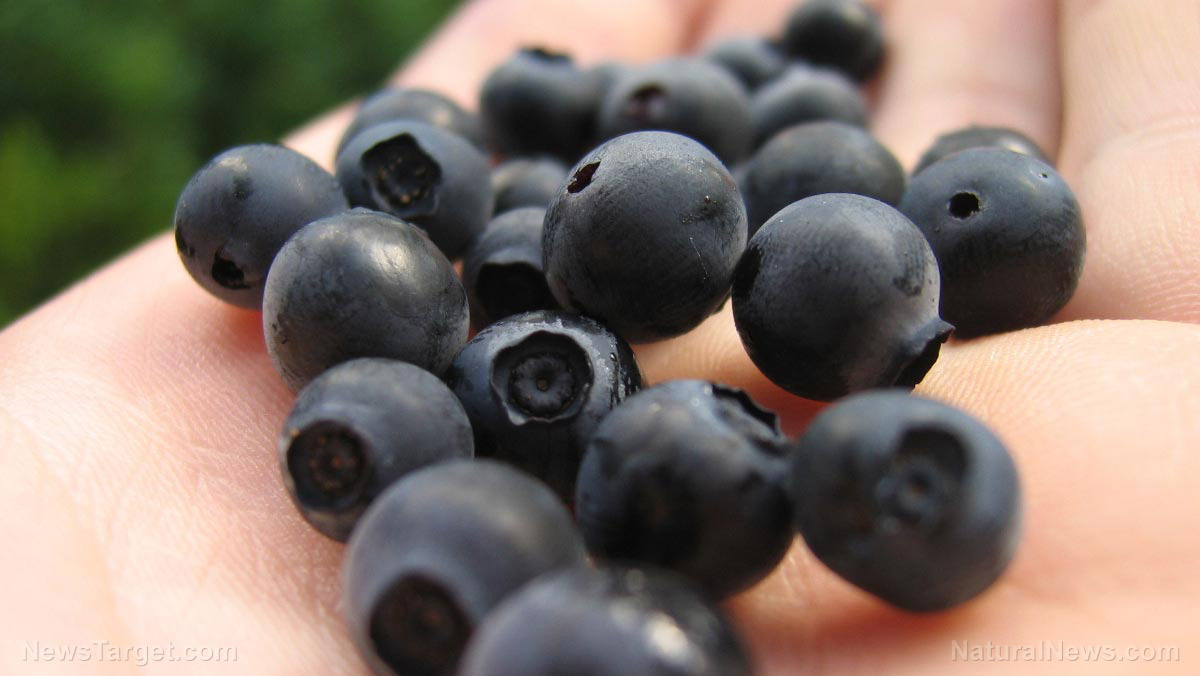
( Natural News ) In highly vaccinated populations, cognitive impairment begins at an early age. The antigens in vaccines are not benign; they are combined with aluminum cations to stimulate the response of immune cells in the human recipient. As immune-responsive cells uptake the antigen, they simultaneously carry aluminum cations throughout the body and into the brain . Aluminum is a neurotoxin. With every vaccine injection, the developing infant brain is suppressed, sometimes damaged. Accumulating exposure multiplies the risk. Cognitive decline can continue into adulthood and old age, if we allow it. We can also prevent cognitive impairment in the next generation if we re-evaluate the necessity of each vaccine dose on the CDC’s vaccine schedule. In the very beginning, the developing brain requires a specific nutrient-dense formula that comes from the mother’s breast. The breast milk provides long-chain polyunsaturated fatty acids (LCPUFAs), notably docosahexaenoic acid (DHA). Breast milk promotes glial cell proliferation and myelination , processes that accelerate structural neuron development. As the child grows and weans from mother’s breast, their brain will benefit the most from healthy fats and antioxidant-rich berries such as blueberries and strawberries. Causes and signs of cognitive decline easily go ignored Brain development is an easy health topic to ignore because we do not measure and hold ourselves accountable to seemingly non-urgent problems such as failing memory, poor decision-making, or a child’s inability to learn and develop language. These shortcomings are often considered genetic disadvantages and very little is done to effectively improve upon brain development and prevent further damage. Cognitive function oftentimes goes unnoticed, sometimes ignored, until it’s too late to correct it with better nutrition and reduction of neurotoxin exposures. When it’s too late, Alzheimer’s, dementia, and memory loss take over in middle age and become a devastating part of a […]
Natural selection and spatial memory link shown in mountain chickadee research

Mountain Chickadees live year-round in the high-elevation Sierra Nevada, including the harsh winters Chickadees with better learning and memory skills, needed to find numerous food caches, are more likely to survive their first winter, a long-term study of mountain chickadees has found. Enhanced spatial cognition and brain power evolves via natural selection, an elaborate study of hundreds of mountain chickadees in the Sierra Nevada has found. Using passive integrative transponder (PIT) tags in combination with radio frequency identification-equipped feeders, scientists at the University of Nevada, Reno have tracked feeding behaviors and measured learning and memory of these non-migratory birds that live year-round in the high-elevation forest northwest of Truckee, California. “This is a unique program, set in the wilderness, so we get unique results,” Vladimir Pravosudov, lead researcher and biology professor at the University’s College of Science , said. “Over the years, we’ve banded and tagged thousands of chickadees and observed their spatial cognition using custom-designed and built feeders that allow us to track how individuals learn and remember. And now we have tested whether individuals with better learning and memory performance are more likely to survive the winter.” Ben Sonnenberg, a doctoral student in the laboratory of Pravosudov (as a part of the Ecology, Evolution and Conservation Biology Graduate program) is the lead author, and Pravosudov is a corresponding author, on a scientific paper, based on the research, published Feb. 7 in the journal Current Biology . ‘We’re looking at how natural selection can generate differences in the birds living in different environments, and we now have direct evidence that selection is acting on chickadees’ spatial cognition, which is needed to find tens of thousands of previously made food caches required to survive the winter,” Pravosudov said. “Our new evidence fully support our previous comparative studies showing that […]
Your multivitamins and brain-boosting pills may be suspect, and regulators are cracking down on the $40 billion industry

This week, federal regulators announced they’ll be taking a more active role in policing the more than $40 billion supplement industry . From vitamins to specialized supplements for improved focus and weight loss, some formulations have been tied to serious health risks . The vast majority of supplements and vitamins have little-to-no strong science behind them, but the space is booming for startups — especially in Los Angeles and Silicon Valley. An error has occurred Sign up for our Health Newsletter! Dispensed: Your weekly dose of healthcare news By clicking Sign Up, you agree to receive marketing emails from Insider Inc. and accept our Terms of Service and Privacy Policy . Vitamins are supposed to be good for you. But if recent research is any indication, the pricey pills and powders may offer less of a nutritional boost than a health risk . From vitamins to specialized supplements for improved focus and weight loss, several formulations have been tied abnormal heart rhythms , worsened asthma symptoms, and even death . So as of this week, federal regulators will be taking a more proactive role to policing the more than $40 billion industry , which has continue to blossom in recent months with the entrance of new startups. On Monday, Scott Gottlieb, the head of the Food and Drug Administration, announced a series of steps his agency would take in coming months to crack down on manufacturers that tout the ability of their formulas to do everything from increase energy to cure cancer. Of particular concern, he noted in a statement , are pills that claim to treat Alzheimer’s , a serious brain disease that hinders memory and currently has no cure. Dietary supplements "cannot claim to prevent, treat, or cure diseases like Alzheimer’s," Gottlieb wrote. "Such claims can harm […]
Your multivitamins and brain-boosting pills may be suspect, and regulators are cracking down on the $40 billion industry
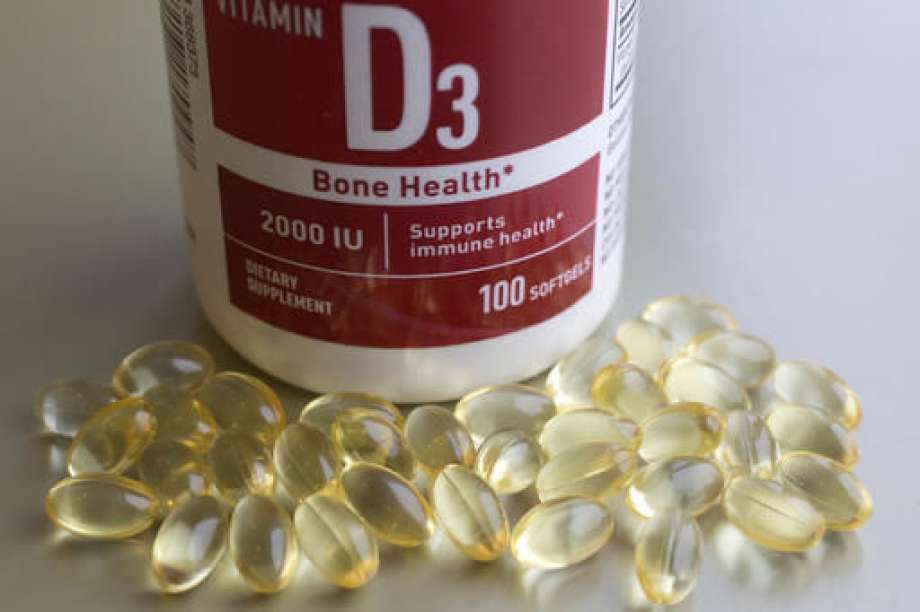
Flickr/B Rosen This week, federal regulators announced they’ll be taking a more active role in policing the more than $40 billion supplement industry . From vitamins to specialized supplements for improved focus and weight loss, some formulations have been tied to serious health risks . The vast majority of supplements and vitamins have little to no strong science behind them, but the space is booming for startups — especially in Los Angeles and Silicon Valley. Vitamins are supposed to be good for you. But if recent research is any indication, the pricey pills and powders may offer more of a health risk than a nutritional boost. From vitamins to specialized supplements for improved focus and weight loss, several formulations have been tied abnormal heart rhythms , worsened asthma symptoms, and even death . So as of this week, federal regulators will be taking a more proactive role in policing the more than $40 billion industry , which has continued to blossom in recent months with the entrance of new startups. On Monday, Scott Gottlieb, the head of the Food and Drug Administration (FDA), announced a series of steps his agency would take in coming months to crack down on manufacturers that tout the ability of their formulas to do everything from increase energy to cure cancer. Of particular concern, he said in a statement , are pills that claim to treat Alzheimer’s , a serious brain disease that hinders memory and has no cure. Dietary supplements "cannot claim to prevent, treat, or cure diseases like Alzheimer’s," Gottlieb wrote. "Such claims can harm patients." On Monday, the FDA said it sent warnings or advisory letters to 17 companies for illegally selling products that claim to treat Alzheimer’s disease. Other, less niche supplements may be equally risky, according to a recent […]
Your Guide To The Top Brain Nootropics For Beginners
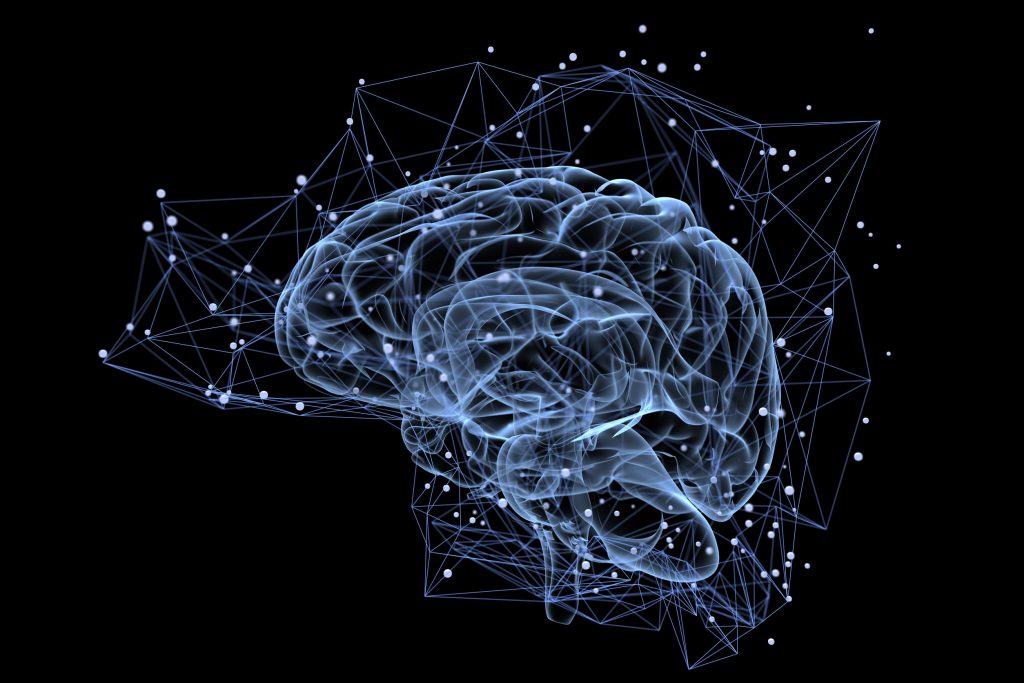
Nootropics are rapidly becoming popular in the world because people want to boost intelligence, focus, memory, mood, and creativity – to get a competitive edge over others . It is a class of substances that can be synthetic or natural. Nootropics blogger, Simon Manning knows everything you need to know about these neuro-enhancers because he has experimented with supplements for over 10 years. The brain undergoes various processes and the activity of these drugs varies according to those processes in your brain . It is not entirely new to modify the brain function, for over a thousand years our forefathers have been altering the function of the brain with herbs and alcohol. Nootropics: Origin of the word In 1963, Dr. Corneliu Giurgea, a Romanian chemist and psychologist synthesized Piracetam . He eventually created the word “nootropic” in 1972 – ‘nous’ means mind and ‘trepein’ means to bend in Greek. How To Define Nootropics In order for a substance to be called a nootropic, Dr. Giurgea listed some characteristics it should have. A true nootropic should: Help the brain to work in situations like electroconvulsive shock and absence of oxygen Intensify mental processes naturally Improve learning ability and memory Must not depress or stimulate the brain, i.e. not harmful to humans In the presence of drugs like barbiturates, anticholinergic, it should shield the brain from harmful physical and chemical substances Usually, a nootropic has one specific function i.e. to boost memory or it might have more than one effect on the brain. Synonyms for Nootropics It can get confusing for a newbie when you come across many words used instead of just nootropics. The common terms are brain supplements, smart drugs, memory enhancers, neuroceuticals, brain drugs, neuro-enhancers, cognition-enhancing supplements, nootropic supplements, intelligence enhancers, nutraceuticals, cognitive enhancer etc. However, many knowledgeable […]
Does Sniffing Rosemary Increase Memory by 75 Percent?

Rosemary has long been associated with memory enhancement in classical literature and in folklore. The herb makes a notable cameo in Shakespeare’s Hamlet , for instance, when Ophelia describes the rosemary as “for remembrance.” More recently, the internet has been littered with a specific claim about rosemary and memory that purports to be scientific evidence in favor of this classically held notion: “Sniffing the herb can increase memory by 75%.” This assertion — that a scientific study demonstrated that sniffing rosemary can “increase” one’s memory “by 75 percent” (whatever that means practically) — can be found on all the usual pseudoscientific natural health websites. “The results were remarkable: people had 60 to 75% chances of remembering things, compared with people who were not given rosemary essential oil!” Natural News exclaimed . “Study: Smelling Rosemary Increases Memory by 75%” proclaimed a David “Avocado” Wolfe headline. All of these claims have their origins in Daily Mail coverage of a 9 April academic presentation at the 2013 British Psychology Society annual meeting, given by a student working in the lab of professor Mark Moss, a psychologist at Northumbria University in Newcastle, U.K. Academic presentations are not peer-reviewed studies (despite Wolfe’s headline), and even when they are reported on in good faith (a stretch for the Daily Mail ’s science desk), they need to be taken with grains of salt. The talk at the 2013 meeting centered on a small-scale experiment in which a mere 66 participants were placed either in a rosemary-scented room or a non-scented room and asked to perform specific memory recall tasks, as described by the Daily Mail : A team of psychologists at Northumbria University, Newcastle, tested the effects of essential oils from rosemary. Dr Mark Moss, who will present the findings today at the British Psychology Society […]
Your Guide To The Top Nootropics For Beginners
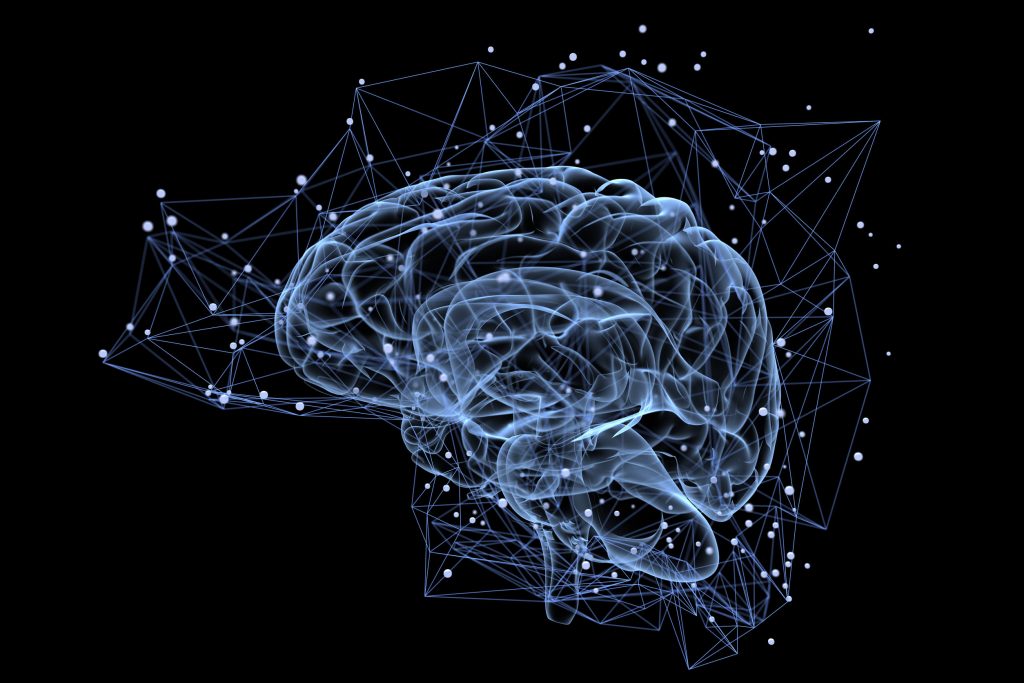
Nootropics are rapidly becoming popular in the world because people want to boost intelligence, focus, memory, mood, and creativity – to get a competitive edge over others . It is a class of substances that can be synthetic or natural. Nootropics blogger, Simon Manning knows everything you need to know about these neuro-enhancers because he has experimented with supplements for over 10 years. The brain undergoes various processes and the activity of these drugs varies according to those processes in your brain . It is not entirely new to modify the brain function, for over a thousand years our forefathers have been altering the function of the brain with herbs and alcohol. Nootropics: Origin of the word In 1963, Dr. Corneliu Giurgea, a Romanian chemist and psychologist synthesized Piracetam . He eventually created the word “nootropic” in 1972 – ‘nous’ means mind and ‘trepein’ means to bend in Greek. How To Define Nootropics In order for a substance to be called a nootropic, Dr. Giurgea listed some characteristics it should have. A true nootropic should: Help the brain to work in situations like electroconvulsive shock and absence of oxygen Intensify mental processes naturally Improve learning ability and memory Must not depress or stimulate the brain, i.e. not harmful to humans In the presence of drugs like barbiturates, anticholinergic, it should shield the brain from harmful physical and chemical substances Usually, a nootropic has one specific function i.e. to boost memory or it might have more than one effect on the brain. Synonyms for Nootropics It can get confusing for a newbie when you come across many words used instead of just nootropics. The common terms are brain supplements, smart drugs, memory enhancers, neuroceuticals, brain drugs, neuro-enhancers, cognition-enhancing supplements, nootropic supplements, intelligence enhancers, nutraceuticals, cognitive enhancer etc. However, many knowledgeable […]
Smart Meters to start tracking dementia patients in the U.K. as Big Brother wields medical surveillance tech against its own citizens

( Natural News ) Smart Meters have drastically changed how utility companies collect energy usage data from customers. Old-fashioned meters had to be checked manually, but they ensured privacy for the homeowner. Now Smart Meters share data on energy usage with third parties, tracking and analyzing every use of natural gas, electricity, and water within the home. This valuable energy usage data is now being shared with governments and medical institutions to conduct medical surveillance against citizens. In the United Kingdom, Smart Meters will be used to track dementia patients’ household habits to monitor for sudden changes that indicate illness, falls, or mental decline. The National Health Services (NHS) will be in charge of the surveillance program. Smart meters automatically send usage information in real time to the energy supplier. This data is now being used to track daily routines and monitor people’s whereabouts. In the near future, the government of the United Kingdom will know every time someone cooks dinner, uses a washing machine, or takes a shower. If an irregularity shows up in a household routine, the computer will send an alert to family members. NHS to begin using Smart Meter data to monitor patients The first goal is to help the growing number of dementia patients to live independently at home while being monitored by Smart Meter technology. The NHS hopes to reduce admissions to A&E and thin out overcrowded nursing homes. At least 50,000 dementia patients are admitted annually for illnesses and injuries that are preventable. As much as 70 percent of care home residents have dementia. The U.K. is home to nearly 850,000 dementia patients, a public health problem that is expected to double over the next thirty years. The power of the elements : Discover Colloidal Silver Mouthwash with quality, natural ingredients like […]
